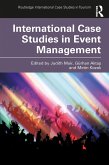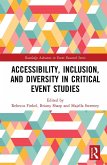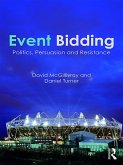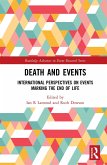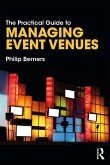This book challenges the reader to reach beyond the established modes of thinking about events by placing them against a backdrop of much wider, critical discourse. Approaches and Methods in Event Studies emerges as a conceptual and methodological tour de force-comprising the works of scholars of diverse backgrounds coming together to address a range of philosophical, theoretical, and methods-related problems. The areas covered include the concepts of eventification and eventual approaches to events, a mobilities paradigm, rhizomatic events, critical discourse analysis, visual methods, reflexive and ethnographic research into events, and indigenous acumen.
Researchers and students engaged in the study of events will draw much inspiration from the contributions and from the volume as a whole.
Dieser Download kann aus rechtlichen Gründen nur mit Rechnungsadresse in A, B, BG, CY, CZ, D, DK, EW, E, FIN, F, GR, HR, H, IRL, I, LT, L, LR, M, NL, PL, P, R, S, SLO, SK ausgeliefert werden.




